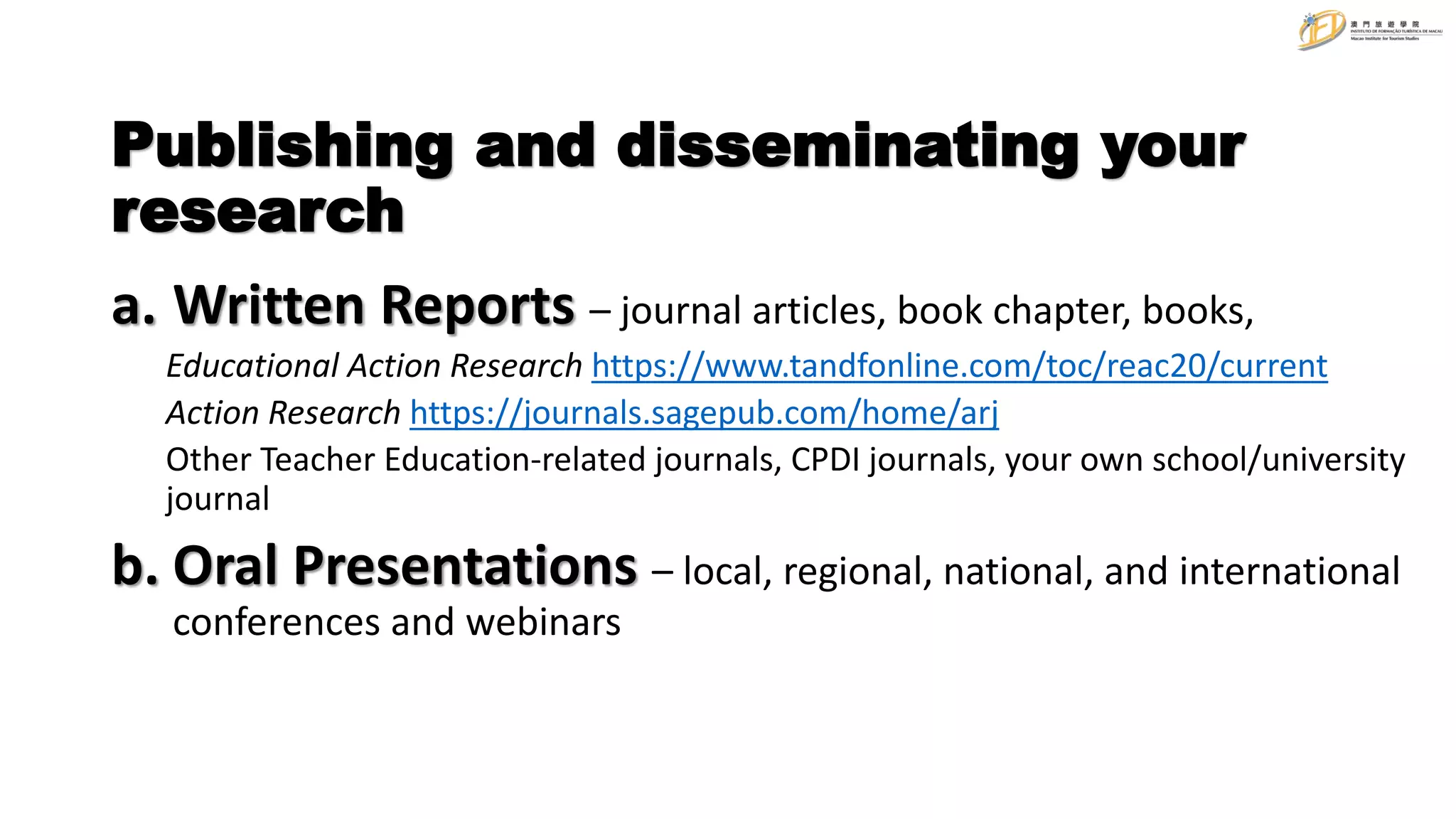The document provides a comprehensive guide on action research for educators, detailing its purpose, methodologies, and the benefits of conducting research in teaching. It outlines the steps involved in action research, including identifying problems, planning and implementing interventions, and evaluating outcomes. The guide emphasizes the importance of reflective practice and collaboration in enhancing educational practices and ultimately improving student learning.






































































